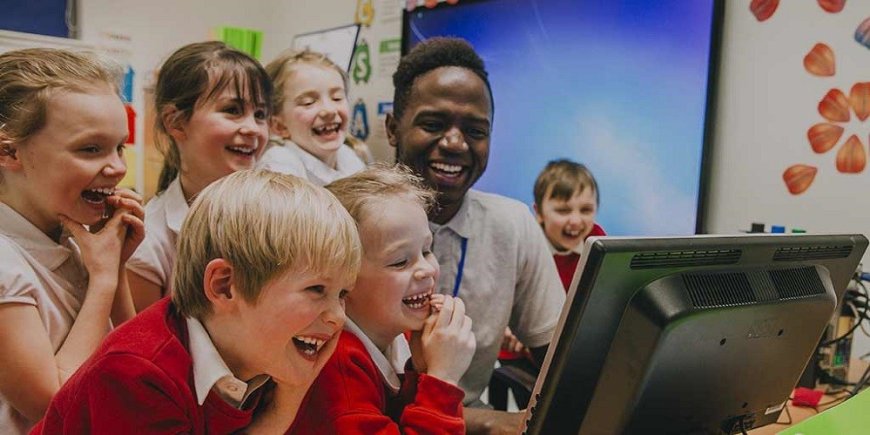Humor in class and its importance
serious all the time. When properly applied, humor in class can have many wonderful benefits. Humor in class and its importance.

Teaching is very important, but it doesn't have to be deadly serious all the time. When properly applied, humor in class can have many wonderful benefits. Humor in class and its importance.
There is no doubt that education is very important to the development of society. This does not mean, however, that it should only be serious and stressful. On the contrary, humor used in a lesson can have many benefits for both students and teachers.
Each of us had negative experiences at school. Many of us remember the stress, the shame, the fear of the teacher and the heavy, gloomy atmosphere in which we spent most of our days. Fortunately, education models are starting to change. In fact, more and more teachers are trying to make learning a rewarding experience.
Humor is the basis of education
Everything that causes laughter, fun and positive emotions can be considered humor. This includes, but is not limited to, jokes, games, and many other stimuli. In fact, humor stimulates our brain's reward circuitry in a healthy and simple way. That is why children play to discover the world around them.
By playing, they discover, learn and practice important behaviors. However, they do it in a relaxed and satisfying way. Therefore, whenever they can, they want to play the same game again to experience these positive emotions again.
Must Read: Superior University Collaboration with Coursera under Rectors™ Faculty Development Program
It goes without saying that the most important lessons take place only when they are related to emotions, and ideally when they are also enjoyable!
Benefits of using humor in class
Reduce stress and increase motivation
The learning process can be difficult. Students often experience frustration, failure, boredom and tension. Then the lesson becomes a stressful experience that causes negative emotions. This can lead to symptoms of anxiety and depression even at a young age.
Likewise, teachers are immersed in this tense and exhausting environment every day. Therefore, they can suffer from burnout, and students see their moods change from day to day.
However, when used properly, humor in the classroom helps create a positive and relaxing atmosphere. In this way, making mistakes does not mean being rejected or humiliated. On the other hand, children experience pleasant emotions when cooperating and showing empathy.
It will undoubtedly help teachers and students alike to be happier and have a better quality of life. Moreover, it will motivate both groups to work more enthusiastically. When learning is fun and enjoyable, when it generates positive feelings, who wouldn't want to go on?
Relationships that strengthen the learning process
Teaching largely involves social relationships. Teachers need to be able to grab the student's attention and provide information. In addition, relationships with peers are also very important. Humor promotes closeness, intimacy and cohesion between people.
The walls that divide people fall and a very strong relationship is created based on mutual trust. Thanks to humor, tensions ease, relationships tighten, and communication improves. In addition, funny information is more attractive. Therefore, children remember them more easily.
Promoting mental flexibility
Aspects such as creativity, cognitive flexibility, and analytical skills are essential to life. However, schools often have rigid curricula that prevent children from actively participating in their education. Therefore, they become passive recipients of information that does not even interest them.
By using humor in the classroom creates open, flexible minds. It stimulates the ability of divergent thinking in children. It also helps children see things from other points of view.
What should humor in class look like?
Of course, not all humor will work in every situation. Mocking, humiliating, or laughing at someone else's expense will make people feel overwhelmed. Humor in the classroom must focus on building relationships and learning from mistakes.
Therefore, use jokes that unite the group. Make children feel like they belong to her! Encourage a relaxed and positive approach to mistakes as a natural part of the learning process.
